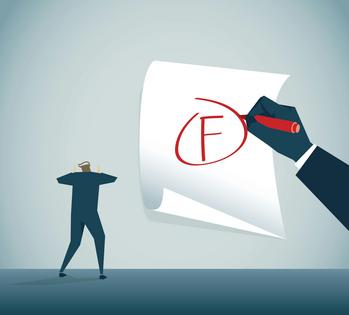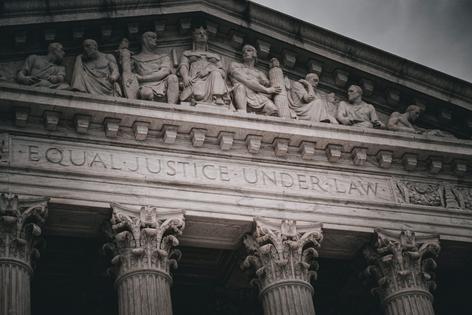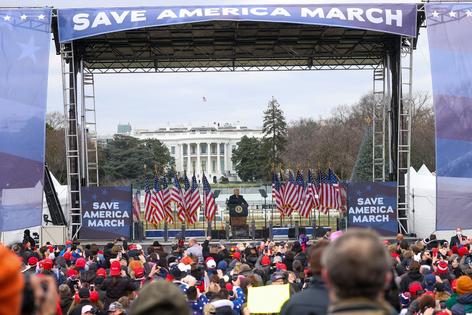How Trump’s lawyers would fail my constitutional law class with their Supreme Court brief on criminal immunity
Published in Political News
Former President Donald Trump claims that the president of the United States is absolutely immune from criminal prosecution.
On March 19, 2024, Trump filed his brief with the U.S. Supreme Court in the case brought by special counsel Jack Smith for Trump’s alleged criminal attempts to overturn the 2020 election.
Trump argued in the brief that the Supreme Court must dismiss the criminal indictment against him because his alleged conduct constituted official acts by a president and that presidents must be afforded absolute immunity for their official acts.
To support his contention, Trump cites Supreme Court cases, the Federalist Papers, and other writings from legal scholars. Trump argues that these documents show presidents hold absolute immunity from criminal prosecution.
But as a constitutional law scholar, I know that those writings, in fact, say the opposite. They say U.S. presidents are not absolutely immune from criminal prosecution.
If a student of mine had submitted a brief making the arguments that Trump and his lawyers assert in their Supreme Court filing, I would have given them an F.
It is standard practice for a person involved in a lawsuit and their lawyers to quote past cases and other legal writing to support their arguments.
It is also common for litigants to quote the Supreme Court justices themselves – either from their past opinions or other writings, such as law review articles – to advance their arguments.
But it is not standard practice to characterize those cases and documents as saying one thing when they say the complete opposite.
Trump begins by citing Marbury v. Madison from 1803, which is one of the court’s most consequential cases. He argues that Marbury v. Madison said that a president’s official acts “can never be examinable by the courts.”
But Trump ignores the paragraph that immediately follows that passage in the Marbury opinion, which states that when Congress “proceeds to impose” legal duties or directs the president to “perform certain acts,” the president “is so far the officer of the law (and) is amenable to the law for his conduct.” In other words, when Congress enacts a law, the president must follow it.
Trump also argues that, according to the Constitution, “federal courts cannot sit in judgment directly over the President’s official acts.”
This assertion is contrary to scores of cases where federal courts have reviewed presidential acts. While the federal courts have generally refused to direct the president to perform a specific task, federal courts regularly determine whether a president’s actions are legally permissible.
Take Biden v. Nebraska. President Joe Biden sought to cancel more than $400 billion in federal student loans. Biden argued that he had the authority to do so under the Higher Education Relief Opportunities for Students Act passed by Congress in 2003 – known as the HEROES Act. That act grants the secretary of education the authority to “waive or modify” student loan programs during national emergencies.
Several conservative-leaning states challenged the loan forgiveness, and the Supreme Court concluded that Biden did not have the legal authority to cancel the federal student loans under the HEROES Act because the plan was not a “waiver” or “modification.” Here, as they did in countless other cases, the federal courts sat “in judgment directly over the President’s official acts.”
But the main legal question remains – whether a president holds, as Trump claims, absolute immunity from criminal investigations and prosecutions for a president’s official acts.
From a policy perspective, Trump claims that “functional considerations” warrant the absolute immunity that he seeks because if a president is subject to criminal liability, that legal exposure “will cripple … Presidential decisionmaking.”
To further this claim, Trump relies on a 2009 law review article by Judge Brett Kavanaugh, then of the U.S. Court of Appeals for the District of Columbia Circuit, who now sits on the Supreme Court. Trump quotes Kavanaugh, who wrote that “a President who is concerned about an ongoing criminal investigation is almost inevitably going to do a worse job as President,” which Trump provides as evidence of support for the position that a president requires absolute immunity.
But even a cursory reading of Kavanaugh’s article reveals that Kavanaugh argued only for a deferral of a criminal prosecution until after a president leaves office.
As Kavanaugh states, “The point is not to put the President above the law or to eliminate checks on the President, but simply to defer litigation and investigations until the President is out of office.”
Simply put, the underlying premise of Kavanaugh’s article is that a president can be held criminally liable for his conduct.
It is true, however, that presidents enjoy absolute immunity from civil liability for their official acts. That issue was settled in Nixon v. Fitzgerald.
In that case, A. Ernest Fitzgerald lost his job as a management analyst with the Air Force. According to Fitzgerald, he was terminated in retaliation for his testimony before Congress about cost overruns of $2 billion on a transport plane project.
After tapes emerged in which then-President Richard Nixon was heard ordering that Fitzgerald be fired, Fitzgerald sued Nixon for retaliatory termination. The Supreme Court concluded that a president enjoys absolute immunity for his acts “within the outer perimeter of his official responsibility.”
Nixon v. Fitzgerald is a civil case. Trump urges the court to extend the presidential immunity established in this civil case to criminal matters. But he overlooks the fundamental difference between the civil justice system and the criminal justice system.
The purpose of the civil justice system is to make an injured party whole again. But the purpose of the criminal justice system is to protect society, because crimes are understood to be harms against the public.
This article is republished from The Conversation, a nonprofit, independent news organization bringing you facts and trustworthy analysis to help you make sense of our complex world. It was written by: Wayne Unger, Quinnipiac University
Read more:
Can Trump be prosecuted? Supreme Court will take up precedent-setting case to define the limits of presidential immunity
Trump defends himself to the Supreme Court, saying he called ‘for peace, patriotism, respect for law and order’ on Jan. 6 and is not an insurrectionist
More than 78 ‘friends’ of the Supreme Court offer advice on the 14th Amendment and Trump’s eligibility
Wayne Unger does not work for, consult, own shares in or receive funding from any company or organization that would benefit from this article, and has disclosed no relevant affiliations beyond their academic appointment.


































































Comments